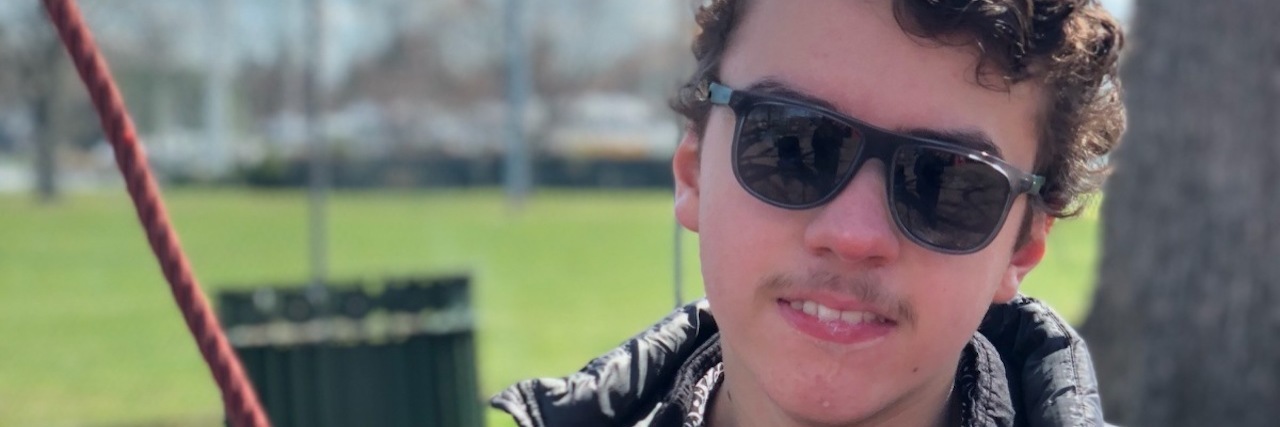I recently joined a group of neighborhood mothers for the March for Our Lives at our school. I talked with one of the mothers — a lawyer turned stay-at-home mom — about my choice not to bring my son in his wheelchair because I was unsure as to the terrain for the march. I said he instead joined his father for a car ride and lately he moved to the front seat of the car which he adores. He loves the feel of the wind, the motion of the car and the sound of the music blasting.
The mother asked, “How can you tell he is excited?” Her question struck me to my core.
My son is nonverbal and non ambulatory, but he is not unresponsive. The first answer that came to mind was, “He is much more expressive and responsive than any of our typical teenage sons.” This answer in my head sounded snarky, so instead I responded, “I can tell he is excited because he shows it with every fiber of his being.”
The mother’s question triggers a worry in me that is profound. I worry about a time when I am not here to answer these kinds of questions on his behalf. I meet many people who equate nonverbal children with lacking any form of comprehension, intellectual awareness or emotional life. These reactions range from the doctor who labeled him “mentally retarded,” even though for the duration of that hospital stay my son was asleep. She spoke the acronym “CPMP” for cerebral palsy mental retardation during rounds one morning. I asked how she arrived at the diagnosis with no tests performed and the lack of observing the patient in a waking state. The label found itself into his medical record and it took me over two years to have the language stricken.
There are those, thankfully, who see who my son is, but those people are rare. As his mother, I try to protect him from those who speak about him as if he is not present. I teach communication and I am aware of the negative effects created by this practice. If the speaker thought about what they were doing to the other, they would never do it. It must be crushing to hear others talk about you as if you were absent when you are fully present. We no longer work with several therapists who repeatedly spoke about him in front of him. Once, his speech therapist pointed out to the occupational therapist (who was co-treating) that Andreas kept saying the same thing repeatedly with his eye gaze device because he wanted to be included in the conversation. It takes a rare person, like his speech therapist, to understand the meaning of this repetition.
I am reminded of a situation not long ago when I had a friend over the house for the first time. She commented on the fact that Andreas smiled. It is comments like these that break my heart. Of course, the woman did not mean to be unkind. She doesn’t know him and she has no experience with nonverbal children with disabilities. I worry about him being in a world where he faces so many people with their own prejudices and such a profound lack of experience.
People such as my son face such acute ignorance and I do not know how this is going to change. We never doubt that babies can experience and comprehend before they have the capacity to produce speech. We never doubt that even our pets understand everything we say to them. Children with a disability seem to be in a different category.
I will end with one more incomprehensible experience. We were sitting in church one Sunday and my son was beaming. He loves all the sensory experiences of church: the candles, the incense, the icons, the choir and the music. The wife of the choir director, the mother of twins like me, leans over him to ask me, “Is he capable of experiencing joy?” My response, “Just look at him!”
Getty image by Koldunov

